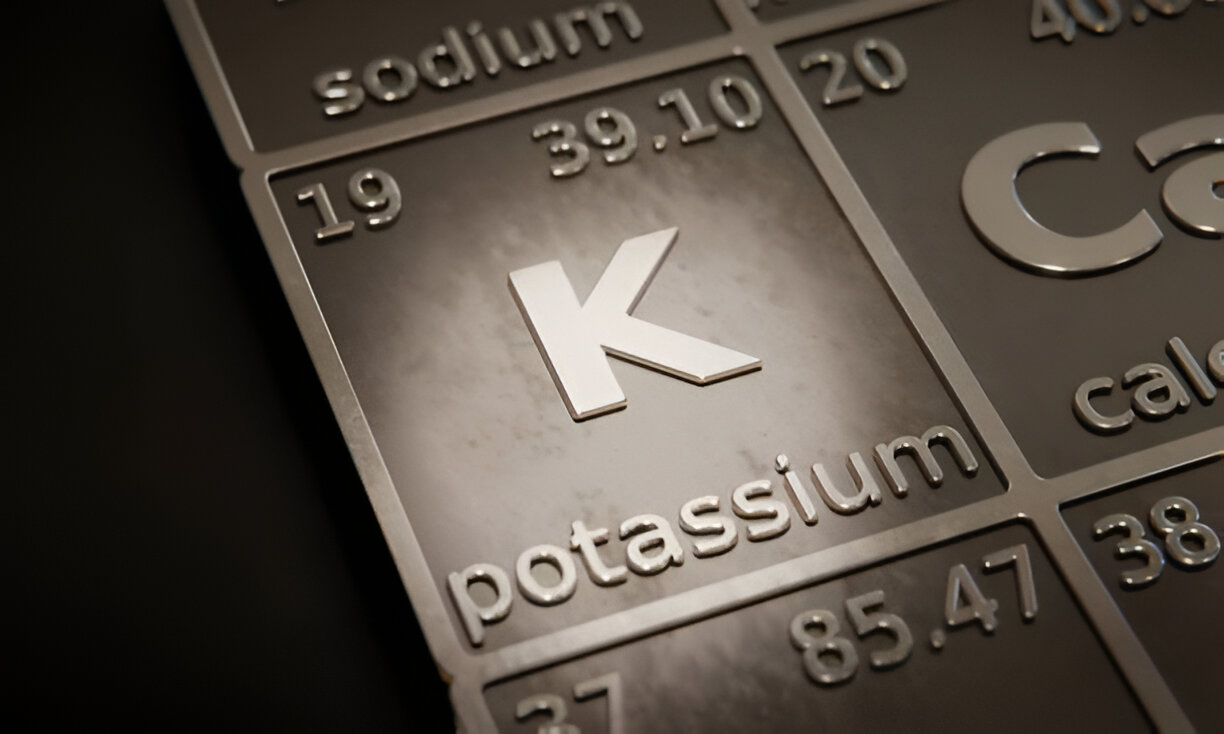Is low potassium a Sign of Cancer medical community recognizes as an essential signal that needs quick evaluation. Our human body functions depend heavily on proper potassium levels since minimal deviations can suggest health challenges.
Medical experts and researchers now suspect cancer may appear through lowered potassium levels. Our search for the significance of potassium imbalances leads us to understand their relationship with body wide health problems further.
Checking for these problems soon helps us stop issues from becoming severe in the long run.
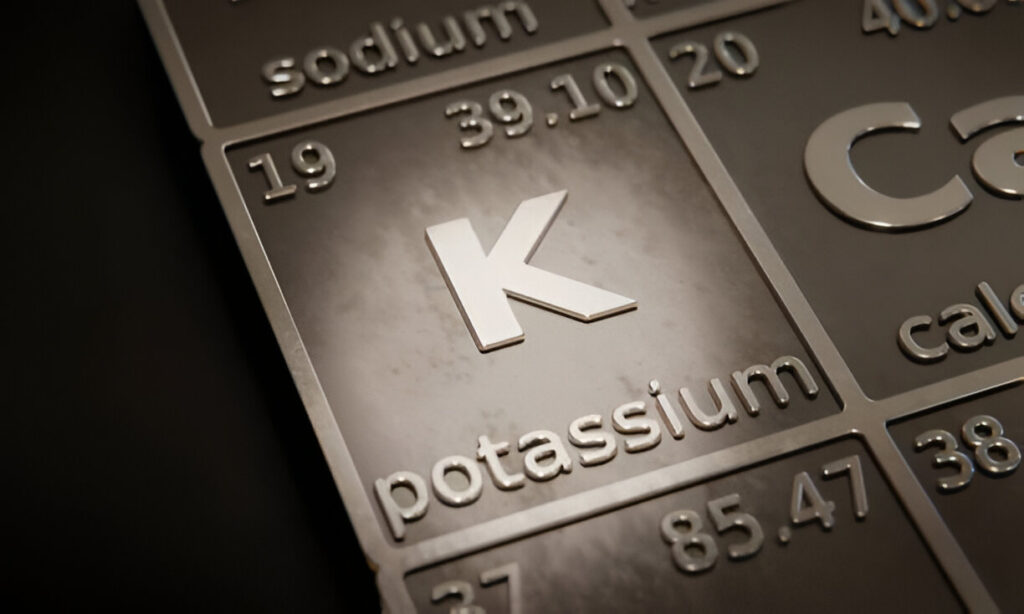
1. Low Potassium Can Be a Sign of Underlying Health Issues
Potassium Role
Body cells depend on potassium as an electrolyte to work correctly. It helps muscles contract and controls heartbeat patterns while keeping nerves active. When potassium decreases, the body’s system performs negatively from start to finish.
People often ask if reduced potassium levels suggest cancer presence. Recent research indicates that potassium plays an active part in safeguarding our genetic material and keeping cells healthy. A potassium level below normal warns that the body faces hidden problems.
Hypokalemia Overview
Hypokalemia occurs when blood potassium levels move below the standard range. This condition harms muscle performance and communication between nerves, leading to symptoms such as weakness and abnormal heartbeats.
Research shows that potassium deficiency might appear before a cancer diagnosis. Medical professionals often talk about low potassium as a potential indicator of cancer since this keyword appears throughout their debates.
Health Risks
The body functions poorly when potassium levels drop below normal limits. The lack of potassium disrupts biological functions and suggests the existence of more serious health problems. Research findings show that cells under stress because of low potassium start to change how they use energy, which increases the risk of developing significant problems.
The findings demand precise testing of potassium levels for proper assessment. Research shows whether cancer causes low potassium levels. This research shows us how bodily diseases and electrolyte disruptions work together in the same system.
Cancer Concerns
Research now shows that low potassium levels in the blood share a strong connection with cancer development. Research shows that low potassium impacts cell cycle controls, which allows cells to multiply without control and create tumors.
Scientists study whether low potassium levels point to an underlying presence of cancer. Despite unclear evidence showing direct cancer triggers, researchers take hypokalemia seriously because it may signal early cancer development, which demands healthcare staff and patients to be watchful.
Lifestyle Effects
Your everyday habits and eating plan directly influence your potassium management. A food plan rich in fruits and veggies, including bananas, oranges, and plant leaves, helps prevent potassium shortages in your body.
Physical exercise and enough water intake help maintain potassium balance in our bodies. Pregnant women use low potassium markers to help them recognize potential cancer problems. To stay healthy, patients need both proper nutrition and wellness practices that support potassium and overall health.
Medical Insights
The medical team relies on complete electrolyte tests in patient bloodwork to identify signs of cancer during routine checks. Doctors use these panels to find tiny changes in potassium values. Low potassium readings lead medical teams to study for possible medical conditions.
Health professionals first assume cancer when patients show potassium deficiency to guide early detection testing and other related questions. Medical testing at an early stage helps doctors take steps to change how serious diseases develop.
Keeping track of potassium measurements and following health promoting actions reduces the chance of severe consequences. Handling potassium needs extends beyond muscle issues because it defends your future health by blocking damage progression towards significant diseases.
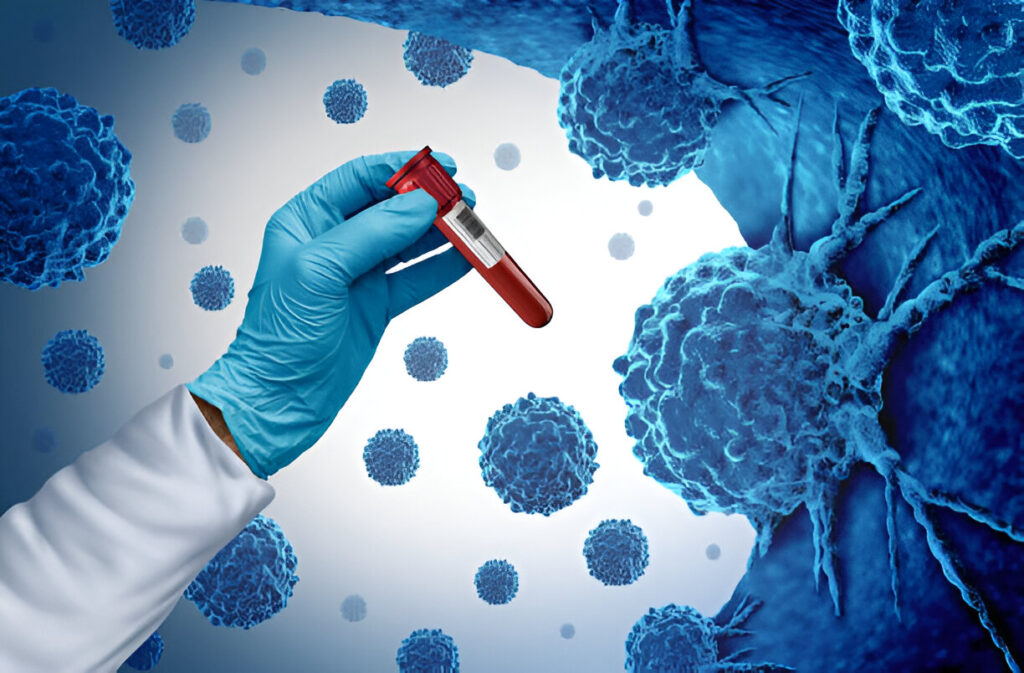
2. Some types of cancers lead to extreme potassium imbalance problems
Cancers and Electrolytes
Cancers are known for disrupting the normal functioning of our body systems. Medical studies demonstrate that certain cancer types can weaken a person’s ability to control potassium levels in their body.
Clinicians have observed that cancer patients often develop low potassium levels, which led to the inquiry about this relationship. Scientists aim to discover if electrolyte problems develop from actual cancer cells or only happen because of treatment approaches.
Potassium Imbalance
The body needs potassium as an electrolyte to express nerve signals and make muscles work, plus control cell activity inside the cells. A medical condition named hypokalemia develops when potassium levels in the body become insufficient.
Some cancers, particularly from the gut and kidneys, can cause severe problems with potassium levels in the body, including endocrine system cancers. The relationship between cancer and low potassium levels prompts people to wonder about this symptom’s connection to cancer. Potassium levels vary before cancer develops because deformed cells produce these signs early.
Mechanisms of Imbalance
Cancers have multiple ways to create potassium balance problems. Tumor secretion affects how kidney and digestive system tissues work, which leads to increased potassium loss from the body. Chemotherapy sessions would further worsen these problems.
When patients have severe hypokalemia, they develop repeated questions about their possible cancer connection. Scientists currently research multiple pathways to understand how cancer and potassium regulating mechanisms affect each other.
Impact on Cells
Cells respond unfavorably to potassium insufficiency during their essential life functions. Normal electrical gradients in cells cannot work, and cells sustain damage when potassium decreases. The body’s response to this potassium shortage stresses its DNA, which helps cancer cells grow.
Physicians seek answers about the relationship between cancer and potassium deficiency because their findings contradict current understanding. Cancer patients show cellular disturbances that generally happen alongside extreme potassium problems.
Diagnostic Perspective
Medical teams typically test electrolytes when they look for cancer in their patients. Doctors should test if low potassium results from its disorder or as part of disease cancer treatment.
When facing this diagnostic challenge, doctors must determine if low potassium levels are related to cancer. Finding hypokalemia in cancer patients as soon as possible leads to fast medical treatments while providing valuable insights about cancer type and severity.
Treatment Options
Treating severe potassium fluctuations in cancer patients requires specific medical care plans. Patient treatment includes multiple methods to add potassium to the diet while managing cancer and the resulting health conditions.
Treatment for electrolyte disturbance is a crucial part of total patient care. The medical community wonders if low potassium levels demonstrate the presence of cancer. Our treatments must solve cancer and potassium levels to save patients from harm.
Preventative Approaches
You need to take preventive healthcare steps to handle medical situations that lead to extreme potassium imbalances. Patients with a risk of hypokalemia should eat potassium rich foods while drinking enough water and getting medical care regularly to avoid this problem. People should take action soon after learning that low potassium levels point toward cancer risks.
Research Findings
Modern research demonstrates that some cancers appear with severe potassium irregularities. Medical research shows that hypokalemia often occurs before cancer is discovered, which makes the low potassium pattern serve as an initial warning sign of cancer.
Quality research continues to examine whether reduced potassium levels indicate cancer presence. New research proves that we must study how potassium regulation works differently during cancer growth.

3. Cancer Treatments Can Drain Potassium Levels
Cancer Therapies Impact
Revolutionized survival rates are cancer treatments, including chemotherapy, radiation, and targeted therapies. However, unlike the treatment of hyperkaliemia, these potent interventions may have unintended consequences on the body’s fragile balance of electrolytes.
We often see one of the most frequent disruptions in potassium levels falling. Occasionally, patients who are treated for suspected cancer will experience unexpected electrolyte disturbance, and the phrase used is that low potassium is a sign of cancer.
Thus, as researchers and clinicians study these phenomena, they see that cancer treatments and potassium homeostasis are a complex and critical play.
Treatment Side Effects
Systemic side effects are known to be many of the cancer therapies! For example, chemotherapy agents are developed to fight rapidly dividing cells. However, they do not differentiate between malignant cells and other rapidly dividing cells in the gastrointestinal tract.
This damage can cause severe vomiting, diarrhea, and malabsorption, leading to deficiencies in all their vital nutrients, including potassium. Thus, in this sense, patients and practitioners self reflect, “Is low potassium a sign of cancer or a side effect of the aggressive treatment to fight it.”
Physiological Imbalance
Other targeted treatments and radiation therapy also damage cellular membranes and normal ion channels, making it more challenging to retain potassium. If that homeostasis is off balance, all sorts of things related to muscle function, nerve conduction, and cellular metabolism can be affected.
With these therapies continuing to wreak havoc with the body’s equilibrium, ‘Is low potassium a sign of cancer?’ is a question with a different meaning for the body.
In the majority of cases, the drop in potassium is not caused directly by the cancer itself but by the cancer treatment that uses very aggressive treatments to try to get rid of this.
Metabolic Consequences
When potassium is out of the optimal range, the body is stressed metabolically. Essential cellular processes become impaired. They weaken muscles, become erratic in the rhythm of the heart muscle, and become less efficient in the nervous system.
These effects are detrimental not only to the people who assist the patients in treatment but can worsen an already difficult battle for those patients.
It is quite common for anyone to recurrently inquire if low potassium is a sign of cancer, and the fact lies that low potassium could be a sign of cancer or, more likely, a sign of treatment induced metabolic chaos.
Such a deficit carries a significant physiological burden during cancer therapy that warrants vigilant monitoring during treatment.
Clinical Considerations
Physicians have observed that patients seeking cancer treatments frequently must have electrolytes assessed regularly in various clinical settings. However, blood tests find that potassium levels can fall unexpectedly, and healthcare providers will have to change the treatment plan or start giving potassium supplements to the patient to stabilize the condition.
The question is a substantially multilayered one of “Is low potassium a sign of cancer?” and the resolution may be an oxymoron; low potassium may represent both the cancer and its treatment. Because of this, proactive management is necessary to palliate further complications.
Patient Experiences
A loss caused by the treatment of potassium can often be directly attributed to an array of symptoms, from mild fatigue to severe muscle cramps reported by patients. They offer another level of complication to something so complex as fighting cancer.
Many patients and their caregivers revisit the notion of low potassium as a sign of cancer’ over and over again as they face these troubling questions. This elucidates why the patient’s overall health picture includes an electrolyte imbalance as an equally important piece of the puzzle concerning the primary cancer diagnosis.
Preventive Strategies
Preventive strategies are necessary since low potassium can have such a dramatic impact. Introducing a potassium rich diet and getting enough, or when needed, supplemental potassium can work to counteract the effects of devastating cancer treatments.
Healthcare providers are regularly consulted so potassium levels can be monitored closely and treated throughout treatment. Such an active method can abate some of the adverse effects of the treatment, which compels the need to review the query ‘Low potassium a sign of cancer’ from several points of view.
Ongoing Research
However, it is generally unclear how cancer treatments interact with electrolyte imbalances. Now, emerging studies are trying to find out whether low potassium is really a side effect of the treatment or maybe a very subtle clue to the cancer itself.
This research is necessary to refine treatment protocols Penh, enhance patient outcomes, and ensure that each aspect of the patient’s health is considered when they wage a battle against cancer.
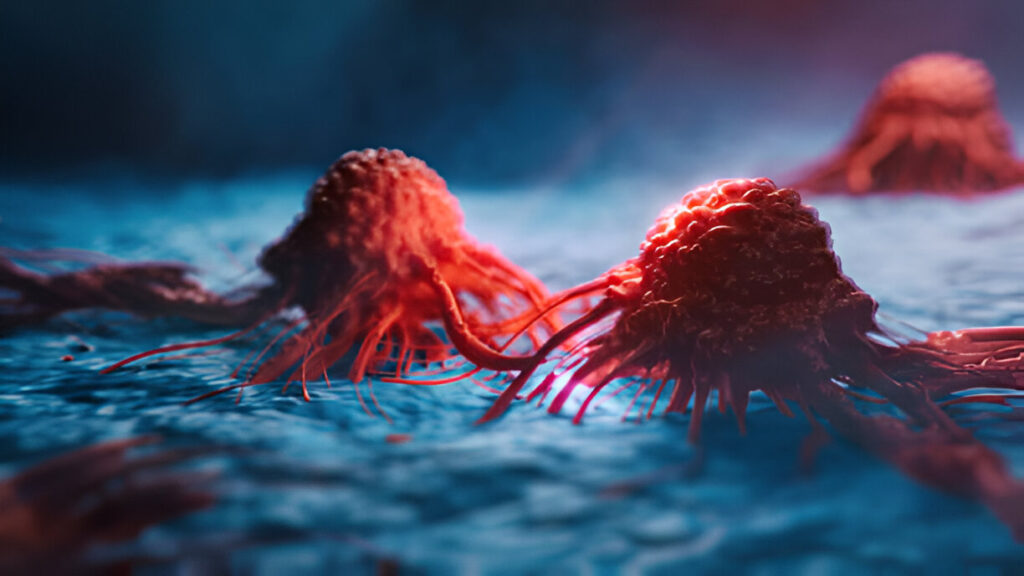
4. Low Potassium Can Trigger Life-Threatening Symptoms
Essential Role
Potassium is an essential electrolyte that maintains the healthy function of almost every cell in the human body. Proper nerve conduction, muscle contraction, and heart rhythm can only be established due to this process.
Abnormal processes can arise from low potassium levels, and one big question is, most importantly, “Is low potassium a sign of cancer?” This query may have controversies, but it indicates that even potassium deficiency has potential dangers.
There are life threatening symptoms that affect multiple organ systems, and early recognition and intervention are absolutely critical since low potassium can cause them.
Silent Deficiency
While a slight dip in potassium levels will often not be noticed, subtle changes can have significant consequences. Hypokalemia is a condition that starts subtly before catching up to more serious manifestations.
For patients, a question may be, “Is low potassium a sign of cancer?” If in doubt, it is referred to when suffering from unexplained fatigue or muscle weakness. Although not all low potassium is cancer, electrolyte imbalance is a disease symptom at the onset. Knowing these early signs is very important to help avoid further complications.
Cardiac Threats
Potassium imbalances are very sensitive to the heart. Lack of potassium causes electrical activity between all other cells to break down, resulting in dangerous arrhythmias. If potassium levels fall further, it can result in life threatening conditions such as ventricular tachycardia, cardiac arrest, and death.
Clinicians often state emphatically that ‘Is low potassium a sign of cancer?’ is the wrong question, as hypokalemia in itself is directly hazardous to cardiac health. For example, too much or too little potassium in the blood is bad for your heart, and protecting it prevents potentially fatal outcomes.
Muscle Consequences
It also helps potassium with its influence on skeletal muscles by participating in contraction and relaxation necessary for movement. This can lead to very severe muscle weakness, painful cramps, and paralysis.
Yet, these symptoms are debilitating, and if the diaphragm is involved, they can be precipitated, leading to respiratory failure. You ask if patients have such alarming symptoms, they will ask, ‘Is low potassium a sign of cancer?’ Although there is no direct connection to cancer in these cases, the need for proper treatment of the associated electrolyte imbalance is dire.
Neurological Impact
Potassium is necessary for the nervous system to transmit signals between cells. Disruptions in these signals can occur due to low blood potassium levels and can cause neurological symptoms such as confusion, irritability, numbness, etc.
The altered nerve function may even cause seizures or coma in severe cases. When these symptoms match up, the question “Is low potassium a sign of cancer?” may be raised since some research indicates there exist oncologic processes that may be associated with electrolyte dysregulation. Nevertheless, the neurological risks of hypokalemia associated with or not associated with cancer are tremendous and should be quickly evaluated.
Diagnostic Clues
Blood tests can indicate the status of electrolyte levels in clinical settings and provide a clear indication of (for example) potassium levels. Such levels need to be investigated when healthcare providers find them to be low. Frequently asked if low potassium is a sign of cancer.
This question will sometimes complicate working out what is wrong with your patient, but the main goal is to stop your patient from suffering and deal with this deficiency. Symptoms may be reviewed very carefully with appropriate laboratory tests that can help identify hypokalemia, which is primary, and hypokalemia, which is secondary to some other sometimes evil condition like cancer.

Treatment Approaches
The management of low potassium hinges on the severity of the deficiency. Mild cases may only need to increase the intake of potassium rich foods such as bananas, oranges, and leafy greens to the diet.
However, in more severe cases, medical intervention will be needed through oral or intravenous potassium supplements.
Though careful monitoring is required throughout treatment to prevent complications such as rebound hyperkalemia, rebound albuminuria should not occur. The common question ‘Is low potassium a sign of cancer?’ may mislead as the treatment is customized for correcting electrolyte imbalance and prevention of life-threatening side effects.
Prevention Focus
Preventing potassium deficiency is as important as maintaining and boosting its levels. It is possible to be checked regularly by a doctor and make nutritional changes to ensure a decline in potassium is spotted early.
Ask frequently, “Is low potassium a sign of cancer? ” If it happens, use a nutrient-dense diet and adequate hydration as a further preventive measure. Instead of being passive, staying proactive with a low potassium problem can prevent the cascade of symptoms that occur.
5. Low Potassium Without Explanation Should Not Go Unnoticed
Health Warning
Never to be disregarded was unexplained low potassium levels. An urgent alarm is a significant drop in this essential electrolyte that shows up on routine blood tests unless there is a clear cause in the body’s complicated machinery.
Without potassium, muscles, nerves, and even the heart do not function smoothly. A disturbance of its level can also mean the unexpected, but it may signal that something underlying is amiss and needs to be treated immediately.
Low potassium is just one question regularly asked is low potassium a sign of cancer? It resonates in clinical settings, piquing the interest of patients and healthcare professionals as to where there could be a systemic problem.
Silent Danger
In most cases, the symptoms of low potassium or hypokalemia can also be quite subtle, leading to an initial lack of awareness. Fatigue, muscle cramping, or mild digestive disturbance may be brushed off as passing phases.
But unlike other signs, when dietary insufficiencies or other common ailments do not resolve these, they also indicate a more serious problem a red flag.
We must, however, remember that a minor electrolyte imbalance can have devastating effects as it cascades through every cellular process, from nerve conduction to heart rhythm, to name a few.
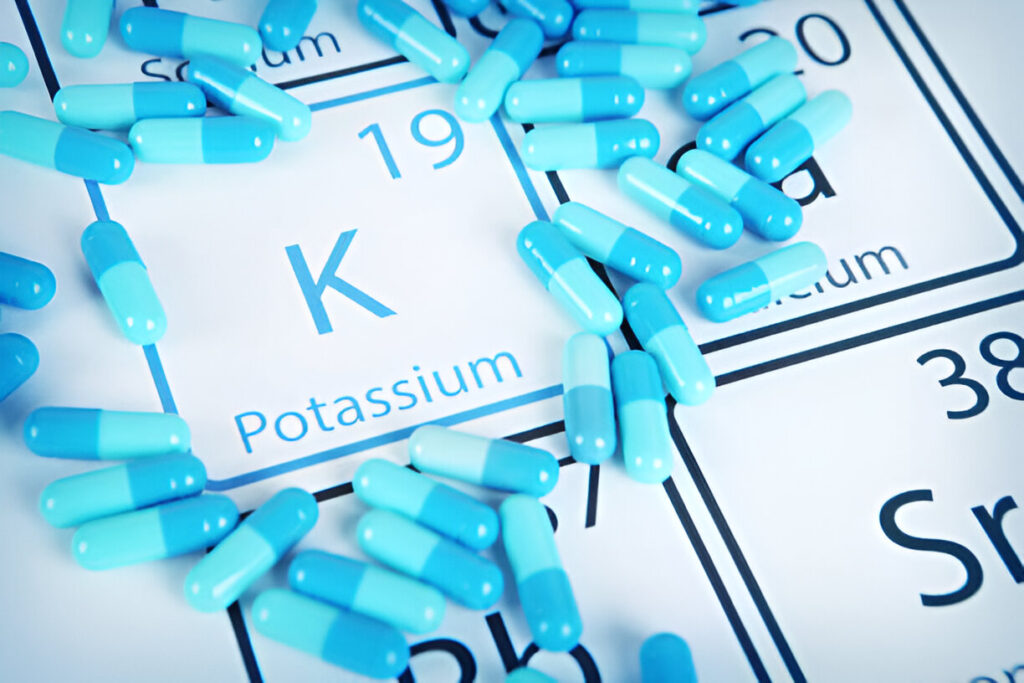
Potential Causes
The causes of unexplained hypokalemia are, for reasons, varied and complicated. This may or may not be due to hidden gastrointestinal losses, subtle kidney dysfunction, or, as a result, some medications. Is low potassium a sign of cancer? It arises often where the deficiency is not due to the usual suspects.
Some types of cancer cause the body not to absorb or keep potassium, leaving it unable to retain potassium and developing persistent hypokalemia. While every case of low potassium is not cancer, the cause should be investigated and examined as to any associated latent pathologies, making the decision to investigate warranted.
Cancer Connection
There has been increasing interest in medical research on the association between hypokalemia and cancer. The potassium regulatory business is underpinned by emerging evidence that some cancers particularly those affecting the gastrointestinal or endocrine systems interfere with the process.
This has caused clinicians to ask time and again, “Is low potassium a sign of cancer?” The possibility raises vigilance in monitoring electrolyte levels about potential hypokalemia as an early indication of cancer might enable early detection and opportunity for cure.
The idea is not simple but not understood yet, and it reinforces that you can’t ignore unexplained low potassium levels.
Diagnostic Steps
Without accurate diagnosis, management is complex. Healthcare providers then may recommend a series of blood tests to assess electrolyte levels more comprehensively when faced with unexplained low potassium.
A combination of these tests, along with a complete patient history and physical examination, will help pinpoint the actual cause.
This is the most recurring question: Is low potassium a sign of cancer? If there is a suspicion of malignancy, it may prompt additional studies for imaging or other specialized investigations. The earlier and the more accurately the diagnosis can be made, the better, as it allows for more timely intervention with better outcomes.
Treatment Approach
There is a multifaceted approach that needs to be individualized to address unexplained hypokalemia. Balanced was restored through dietary modifications, like adding potassium-rich foods, eyespot, bananas, leafy greens, and sweet potatoes.
Medical advice with oral or intravenous potassium supplements may be required in more severe cases.
Potassium levels must be normalized gradually and safely according to a carefully monitored treatment plan. However, managing the underlying cause is important because the treatment they are using to stabilize the problem is targeting the cancer or some other serious condition, so it needs to be initiated as soon as possible.
Prevention Strategies
Proactive health management is based on prevention. For those with otherwise unexplained low potassium, being unbalanced, a nutrient rich diet, and regular monitoring are crucial in prevention.
Changing some lifestyle habits that support the overall electrolyte balance can prevent more serious complications from occurring. The question was, ‘Is low potassium a sign of cancer?’ Even today, maintaining vigilantness of electrolyte levels is critical for long-term health.
What causes low potassium in cancer patients?
Several causes can trigger low potassium levels in cancer patients. Chemotherapy and radiation therapies can kill healthy cells and inhibit the kidneys’ capacity to regulate potassium.
Certain cancers may attack the gastrointestinal tract, causing vomiting, diarrhea or malnutrition that drains potassium. Medications such as diuretics, often used to help control cancer symptoms like fluid retention, can also increase potassium loss in the urine.
Potassium levels can also be low because of hormonal changes or kidney dysfunction associated with cancer. With good management and monitoring, serious complications can be avoided.
Is low potassium a sign of colon cancer
As such, low potassium levels do not overtly contribute to colon cancer. But electrolyte imbalances, even potassium, can happen with specific health problems, including cancer treatments or their complications.
If you experience symptoms such as weakness or fatigue, it’s critical that you consult with a healthcare provider for further evaluation and diagnosis.
Is low potassium a sign of kidney failure
When kidneys fail, they cannot maintain potassium balance. When kidneys lose their ability to function, they may have trouble keeping potassium levels balanced, resulting in imbalances. If you have a kidney condition, you should speak to a healthcare provider for accurate diagnosis and treatment.
Final Reflection
You should never ignore unexplained low potassium. This also is a powerful indicator for further investigation into hidden body’s processes.
Whatever it is, it should be taken care of as soon as possible, either for an early warning sign of cancer or for some other underlying health problem.
With regular checkups, educated food choices, and proactive treatment approaches, individuals can safeguard their health and forestall critical situations as they arise.
<script type="application/ld+json">
{
"@context": "https://schema.org",
"@type": "Article",
"mainEntityOfPage": {
"@type": "WebPage",
"@id": "https://skyhealthnews.com/is-low-potassium-a-sign-of-cancer?/"
},
"headline": "Is low potassium a Sign of Cancer",
"description": "Is low potassium a Sign of Cancer medical community recognizes as an essential signal that needs quick evaluation. medical community recognizes as an essential signal that needs quick evaluation.",
"image": "https://skyhealthnews.com/wp-content/uploads/2025/02/Is-Low-Potassium-a-Sign-of-Cancer-1024x614.jpg",
"author": {
"@type": "Person",
"name": "Farhad",
"url": "https://skyhealthnews.com/author/farhad"
},
"publisher": {
"@type": "Organization",
"name": "",
"logo": {
"@type": "ImageObject",
"url": ""
}
},
"datePublished": "2025-02-02"
}
</script>